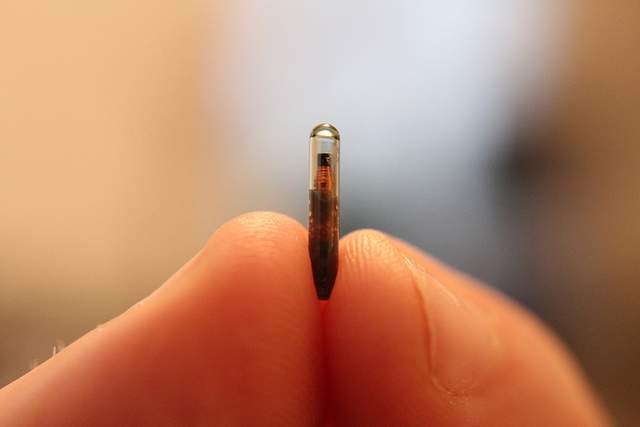
Microchips implanted into our skin sounds like the stuff of science fiction, but it may soon become a reality.
The Wisconsin-based company Three Square Market is giving its employees the option to implant a special radio-frequency chip in their hand. Employees can use the chip to open doors, make cafeteria purchases, and even work copy machines.
The technology could eventually be used to store passports or medical information. Will chip implants become a part of our future?
This week on Noon Edition, our panelists discussed the risks and potentials of implanting technology into our bodies.
Three Square Market says the chips rely on radio frequency identification (RFID) technology to read and store data and do not contain GPS capabilities. However, companies can track the usage of the chip and recognize user patterns and behaviors.
At the same time, many of us already carry around GPS-enabled devices – our smartphones.
Ph.D. student in religious studies Jacob Boss pointed out the fundamental difference between the two devices.
"It's a conversation about degrees,” Boss said. “The phone is tracking us, but we can leave the phone behind ... A chip is far more invasive."
So is it a matter of time before we see more of these chips implanted in us? Jennifer Terrell, a lecturer in the IU School of Informatics and Computing, thinks it depends on the trade-offs we are willing to make.
"One of the problems with this is that it's potentially precedent setting,” Terrell said. “So maybe these RFID chips are not that bad in terms of security risks. But once we're getting used to the idea of implanting chips into our bodies, what other kinds of things do we implant?”
Guests:
Jennifer Terrell: Lecturer, IU School of Informatics and Computing
Jacob Boss: Ph.D. Student, IU Department of Religious Studies






